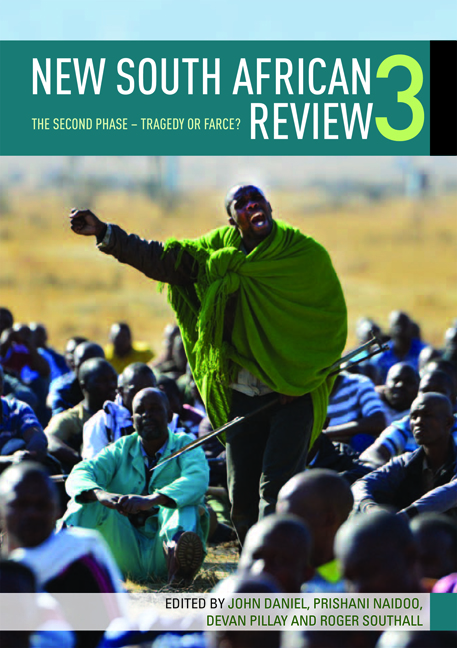Book contents
- Frontmatter
- Contents
- Preface
- Introduction: The second phase – tragedy or farce?
- PART 1 Party, Power and Class
- PART 2 Ecology, Economy and Labour
- PART THREE Public Policy and Social Practice
- Introduction: Public policy and social practice
- Chapter 10 Understanding the persistence of low levels of skills in South Africa
- Chapter 11 Equity, quality and access in South African education: A work still very much in progress
- Chapter 12 Health sector reforms and policy implementation in South Africa: A paradox?
- Chapter 13 Cadre deployment versus merit? Reviewing politicisation in the public service
- Chapter 14 Traditional male initiation: Culture and the Constitution
- PART 4 South Africa at Large
- Contributors
- Index
Chapter 11 - Equity, quality and access in South African education: A work still very much in progress
from PART THREE - Public Policy and Social Practice
Published online by Cambridge University Press: 31 May 2019
- Frontmatter
- Contents
- Preface
- Introduction: The second phase – tragedy or farce?
- PART 1 Party, Power and Class
- PART 2 Ecology, Economy and Labour
- PART THREE Public Policy and Social Practice
- Introduction: Public policy and social practice
- Chapter 10 Understanding the persistence of low levels of skills in South Africa
- Chapter 11 Equity, quality and access in South African education: A work still very much in progress
- Chapter 12 Health sector reforms and policy implementation in South Africa: A paradox?
- Chapter 13 Cadre deployment versus merit? Reviewing politicisation in the public service
- Chapter 14 Traditional male initiation: Culture and the Constitution
- PART 4 South Africa at Large
- Contributors
- Index
Summary
INTRODUCTION
Central to South Africa's transformation from the inequitable system of apartheid into a democratic society that aims to equalise opportunities for its citizens is the establishment of a quality, equitable and democratic education. If schooling under apartheid was deliberately inequitable, and the first decade of democracy was characterised by a dogged if somewhat inflexible drive for equity, then current developments can be said to be searching for more efficient ways of improving the quality of the schooling system, particularly for poor children. Such improvement has been given priority by the postapartheid governments in an attempt to address the high levels of social inequality and the low skills base. The intractableness of inequality in South Africa is well documented (Taylor 2011; Leibrandt et al. 2009; NPC 2011). The Gini coefficient of 0.67 continues to be high by international standards. Inequalities in schooling show up in labour market outcomes, perpetuating current patterns of income inequality (Van der Bergh et al. 2010).
Access to education is a central pillar in development strategies linked to the Millennium Development Goals and the Dakar Framework for Action associated with Education for All (Unesco 2008). The achievement of universal primary education and the attainment of gender equity in enrolments in low-income countries are seen as essential components of efforts to reduce poverty, to increase equity and to transform people's developmental prospects. These goals are supported by studies highlighting the social rates of return on primary schooling (Psacharopoulous and Ng 1994; Hanushek 2005) and the improved income distribution, economic growth, political stability and better governance that would follow from raising the average educational level of the poor.
South Africa's commitment to the Millennium Development Goals is premised on the right to basic education enshrined in Section 29(1) of its Constitution. Unlike a number of other developing countries, South Africa provides near universal access to formal public schooling up to the end of the compulsory phase (Perry and Arends 2003; StatsSA 2006; Chisholm 2011). Estimates of a gross enrolment ratio of 99 per cent in primary grades and 87 per cent in secondary grades place South Africa above what are seen to be feasible targets for middle-income countries (Lewin 2011).
- Type
- Chapter
- Information
- New South African Review 3The second phase - Tragedy or Farce?, pp. 221 - 238Publisher: Wits University PressPrint publication year: 2013

